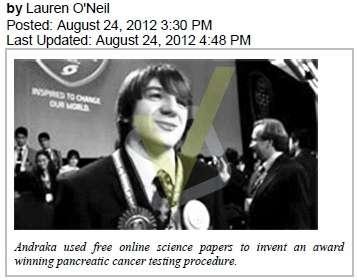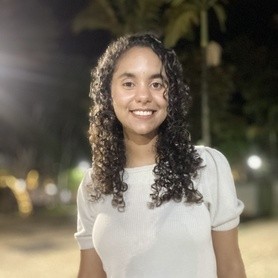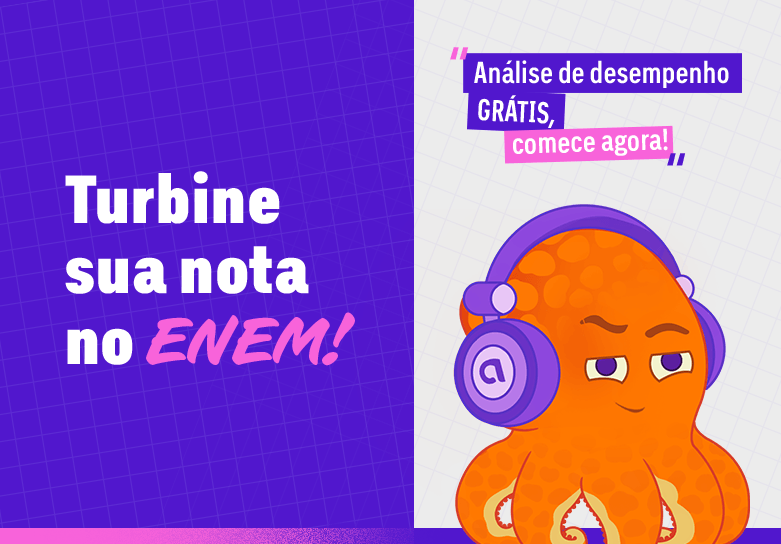UFPR 2013
Teen Googles his way to new cancer testing method

Fifteen-year-old high school student Jack Andraka likes to kayak and watch the US television show Glee. And when time permits, he also likes to do advanced research in one of the most respected cancer laboratories in the world.
Jack Andraka took home top science fair honours this year for the development of a cancer-testing method found to be 168 times faster, 26,000 times cheaper and 400 times more sensitive than the current gold-medal standard. His work was impressive enough to earn the Maryland high school student a total of $100,500 in grants and prizes at the 2012 Intel Science Fair.
Even more impressive is the source he credits for much of his success: Google. "I definitely could not have done this research and project without the use of the internet", Andraka told BBC News in an interview published this week. "I basically went to Google and was looking up cancer statistics, also looking at a bunch of different documents on like, single-walled carbon nanotubes and pancreatic cancer biology", he told the BBC. He also said that the method he created detects “pancreatic cancer, ovarian cancer and lung cancer all in their early stages, where you have possibly a 50pc survival rate”.
Andraka was able to find enough information using search engines and free online science papers to invent his procedure, which is now being hailed as "revolutionary" by the American Cancer Society and science publications around the world. The test uses a method similar to that of a diabetic testing strip, with a dipstick sensor that can test either blood or urine for the presence of mesothelin in the body – a chemical known to be a biomarker for early-stage pancreatic cancer. As Forbes reports, this method could also affect how other types of cancer are diagnosed and treated in the future.
Andraka has filed for a patent for his work with the help of lawyers from Johns Hopkins University, where he conducted his tests for the project. Pathology professor Dr. Anirban Maitra was the only doctor out of 200 that Andraka had contacted to give the eager young student lab access at Johns Hopkins to conduct his science fair project. "You're going to read about him a lot in the years to come", Dr. Maitra told the Baltimore Sun in May. "What I tell my lab is, 'Think of Thomas Edison and the light bulb'. This kid is the Edison of our times. There are going to be a lot of light bulbs coming from him".
(Adapted from and )
According to the text, Jack Andraka:
1. thinks the Internet played a very important role in his research.
2. said he had used online search engine Google to study about cancer.
3. is quite positive that his method can detect nearly all kinds of cancer.
4. said the information he had found on pancreatic cancer was very basic.
5. says that 50 pc is not a very good survival rate for pancreatic cancer.
Which of the items above are true, according to the text?
Only 1 and 4.
Only 1 and 2.
Only 3 and 5.
Only 1, 4 and 5.
Only 2, 3, 4 and 5.
E mais: nota TRI a todo o momento.





